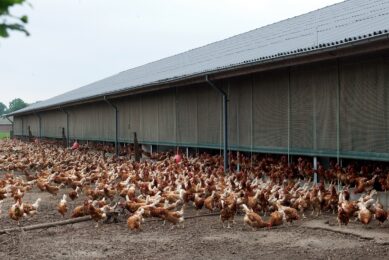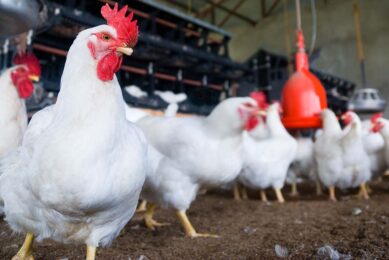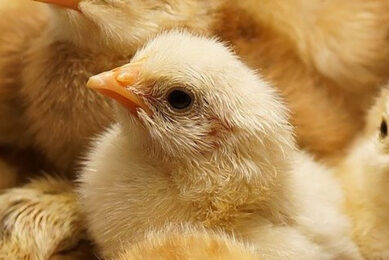Vaccine launched for ILT and Marek’s disease
!["HVT has a good safety profile for chickens and also immunises against Marek's disease, another herpesvirus that causes tumors, immunosuppression and sometimes mortality," said an MSD statement. [Photo: Bart Nijs]](https://www.poultryworld.net/app/uploads/2021/04/001_23_rb-image-2699818-848x565.jpeg)
MSD Animal Health is bringing a new vector vaccine to market – the first of its kind – that can protect poultry against both infectious laryngotracheitis (ILT) and Marek’s disease.
“Infectious laryngotracheitis is a significant concern across the poultry industry since the virus – as well as some existing preventative measures – can have a negative impact on growth and overall performance of the chickens,” said Rik Koopman, global technical director at MSD.
ILT symptoms in birds
Symptoms of ILT include shortness of breath, coughing and abnormal lung sounds. Affected birds may also show reduced appetite or become inactive. ILT also causes a drop in egg production in laying birds – both breeders and layers – and can affect broilers as well.
Currently, birds may be treated for ILT using a live vaccine, so mounting a respiratory tract challenge in the birds. But this can have side effects and live vaccines can also be transmitted to other birds.
A single, subcutaneous shot
The new vector vaccine – called Innovax-ILT – is administered in a single, subcutaneous shot in the hatchery and offers at least 60 weeks’ protection. It works by utilising the herpesvirus of turkey (HVT) as a vector for ILT antigens.
“HVT has a good safety profile for chickens and also immunises against Marek’s disease, another herpesvirus that causes tumors, immunosuppression and sometimes mortality,” said an MSD statement. “The vaccine allows birds to develop immunity against ILT and Marek’s disease before they are exposed to the viruses that cause these diseases.”
The prescription-only medicine will be delivered to hatcheries towards the end of October.
Source: Poultry World
Join 31,000+ subscribers
Subscribe to our newsletter to stay updated about all the need-to-know content in the poultry sector, three times a week. Beheer
Beheer








 WP Admin
WP Admin  Bewerk bericht
Bewerk bericht